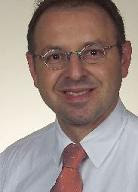FET Procative is running consultation meetings for research calls in 2013. Today (Nov, 11 2011) the meeting is on Human Computer Confluence. This term is interesting and I like the vision, but in general I have an issue with such new terms; It seems this is an European approch to allow a lot of people to be experts... if we would use an established term (e.g. Human Computer Interaction, Cognitive Science, or Artificial Intelligence) it would be easy to see who has expertise in this domain and who does something else or who is not in science at all ;-)
My approach would be to identify the established scientific fields that matter to the research we envision (such as human computer confluence) and find the experts in these fields and give them incentives to collaborate. My best experience in interdisciplinary research is with people who are undisputed experts in one field and work to together with others who are experts in their field. I don't believe in getting together "experts" on a new topic which does not yet exist. As one cannot tell if they are or not (and many are not)...
This meeting on Human Computer Influence seems OK as there are at least a number of experts in established fields who are interested in this new field, hence it is fun to listen to some of the visions.
My vision is based around the idea of "Perception beyond the here and now" [1]. I argue that the transition that can be expected in capture and perception technology is massive. I think the change we are heading for is as fundamental as the transition from oral cultures to written cultures. Having access to all experiences people have ever had are seems to me extremely exciting and at the same time extremely scary.
One central issue I feel strongly about is to give incentives to do high risk and high gain research. So far FET has not been good at allowing risk. None of the 100 projects of the last 5 years explicitly failed. It is clear that not all of them were highly successful - I would expect that typically project, even though the proposals are high risks, they do not carry out the high risk research. Typically the research that is actually done is standard research where researchers are sure that they get enough out to be OK in the review. There is not incentive to do high risk while carrying out the project. I strongly argue that we create incentives to not penalize high risk research while carrying out the research.
[1] Albrecht Schmidt, Marc Langheinrich, and Kritian Kersting. 2011. Perception beyond the Here and Now. Computer 44, 2 (February 2011), 86-88. DOI=10.1109/MC.2011.54 http://dx.doi.org/10.1109/MC.2011.54
Showing posts with label EU. Show all posts
Showing posts with label EU. Show all posts
Friday, 11 November 2011
Wednesday, 24 June 2009
Human Computer Confluence - Information Day in Brussels
 By the end of the month FET Open will launch the call for the proactive initiative on Human Computer Confluence. The term is new and hopefully it will really lead to new ideas. Today was already an information day on the upcoming proactive initiatives. I arrived the evening before and it is always a treat to talk a walk in the city.
By the end of the month FET Open will launch the call for the proactive initiative on Human Computer Confluence. The term is new and hopefully it will really lead to new ideas. Today was already an information day on the upcoming proactive initiatives. I arrived the evening before and it is always a treat to talk a walk in the city. The presentations were not really surprising and also the short intros by the participants remained very generic. Seeing the call that is now finalized and having been at the consultation meetings it seems to me that the focus is rather broad for a proactive initiative… but with many people wanting a piece of the cake this seems inevitable.
The presentations were not really surprising and also the short intros by the participants remained very generic. Seeing the call that is now finalized and having been at the consultation meetings it seems to me that the focus is rather broad for a proactive initiative… but with many people wanting a piece of the cake this seems inevitable. I presented a short idea of "breaking space and time boundaries" - the idea is related to a previous post on predicting the future. The main idea is that with massive sensing (by a large number of people) and with uniform access to this information - independ of time and space - we will be able to create a different view of our realty. We think of putting a consortium together for an IP. Interested? Then give me a call.
I presented a short idea of "breaking space and time boundaries" - the idea is related to a previous post on predicting the future. The main idea is that with massive sensing (by a large number of people) and with uniform access to this information - independ of time and space - we will be able to create a different view of our realty. We think of putting a consortium together for an IP. Interested? Then give me a call.
Subscribe to:
Posts (Atom)
